Magicians have a concept known as “closing the doors”.
It’s an extremely complex, multi-stage form of lying, basically.
It’s misdirection, but a sort of nth dimension misdirection.
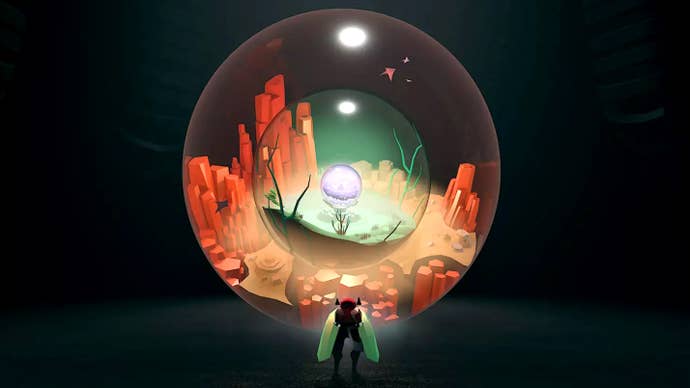
Cocoon review
Cocoon does something similar.
Or maybe it’s the same thing but through the looking glass, inverted, turned upside down.
It’s closing the doors not in the name of misdirection but, well, direction.

And it does it so skilfully I almost always miss those doors closing in the first place.
This is a challenging puzzle game, in other words, but it’s never a jerk.
And the reason it’s never a jerk is all those doors it has closed behind you.
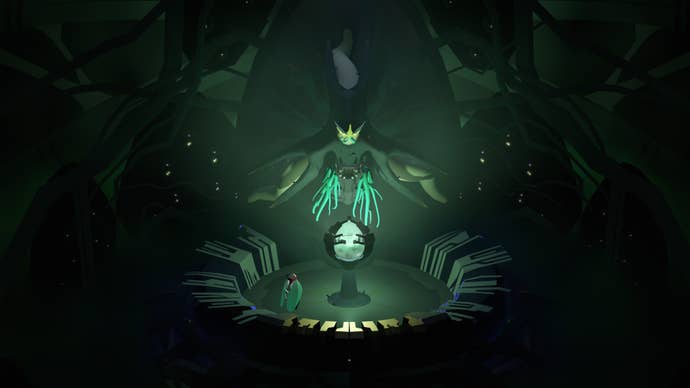
If an area’s no longer needed, it quietly locks it off.
If you need an item, it will find a wordless way to highlight it.
That’s a central element here, and we’ll come back to it later.
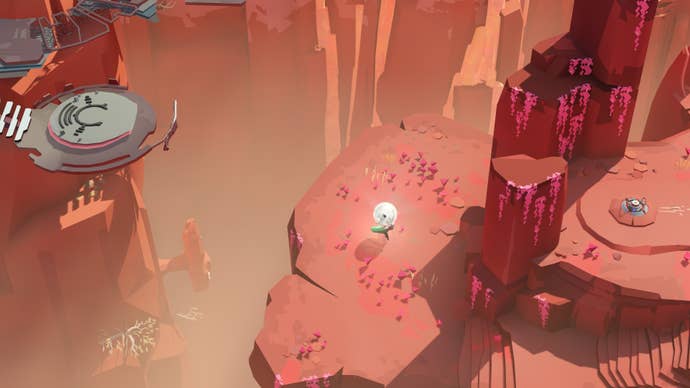
It will just require some alien logic to find it and implement it.
It sounds like an ingenious slog?
It sounds, ultimately, like the kind of game I am too stupid for?
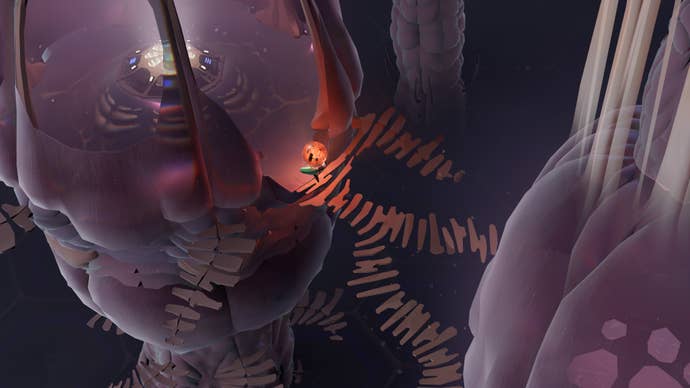
I was delighted, frankly.
Cocoon is a lot of things nested inside a lot of other things.
Nodes, villi, peristalsis, lymph: Cocoon thrills to the unseen geometry and machinations of life.
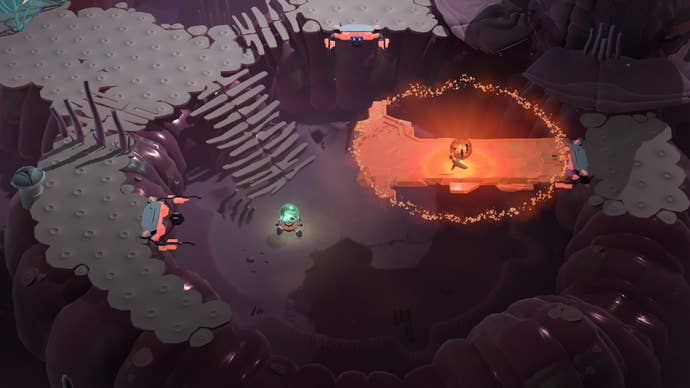
Amongst other things, it’s easily the most bronchial videogame ever made.
I think so, at least.
When playing I can’t work out whether we’re wandering amongst stuffed insects or browsing hi-fi components.
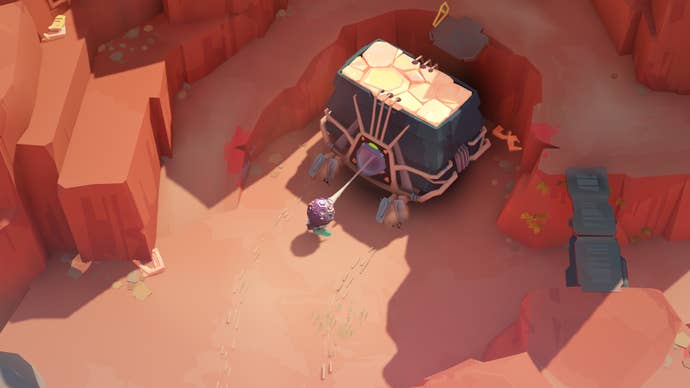
I guess the truth is that Cocoon has found a point where these two worlds combine.
It’s ingenious and beautiful and delicately rendered.
But it’s also swampy and blotted and covered in break-outs.

One lunchtime I tried to play Cocoon while eating a sandwich.
But each sphere also has its own distinct uses.
One can raise or lower misty platforms.
Another can create brittle, candied pathways beneath you in certain locations.
Another can teleport in a way that’s so clever I don’t want to ruin it.
Another can - I had better say no more.
It’s doors again, but a certain kind of literal door.
So what do you do?
Typically, you’ll be in an area where the puzzles will build, Mario style.
And it’s wordless!
Cocoon never ruins the carefully alien mood with overt prompting.
It leads the eye, but it never whispers solutions at you.
It sees the best in you.
It seems to know that you could do things that you would normally suspect that you could’t.
All of this is nice, but get this.
Each of those spheres you hold and walk around with has one of the game’s worlds inside it.
And you might enter the worlds and move between them by placing the spheres on specific in-game platforms.
It’s too much, actually.
Tell me everything will be okay.
you’ve got the option to use the world in the sphere to weight down switches, okay?
Actually, it goes so much deeper than that.
you might move elements through the worlds you have stacked inside other worlds.
Things happen in this game that I can grasp, but which I cannot afterwards explain.
And yet, as I said before, Cocoon’s greatest trick is one of democracy.
Cocoon never tangles itself up like that.
Somehow, it takes all these wonderful concepts and delivers them in a way that I can always understand.
Actually, here’s another way to think about it.
It’s the alien logic thing again.
We were both happy to bask in the wordless astonishment of it all.
(Okay, maybe the fly was just resting.)
Not good enough, they seem to be saying.
Try harder, be more playful, be more thoughtful.
I’m sorry to be vague, but you oughta see this for yourself.
And the message I attached?